Show me all articles
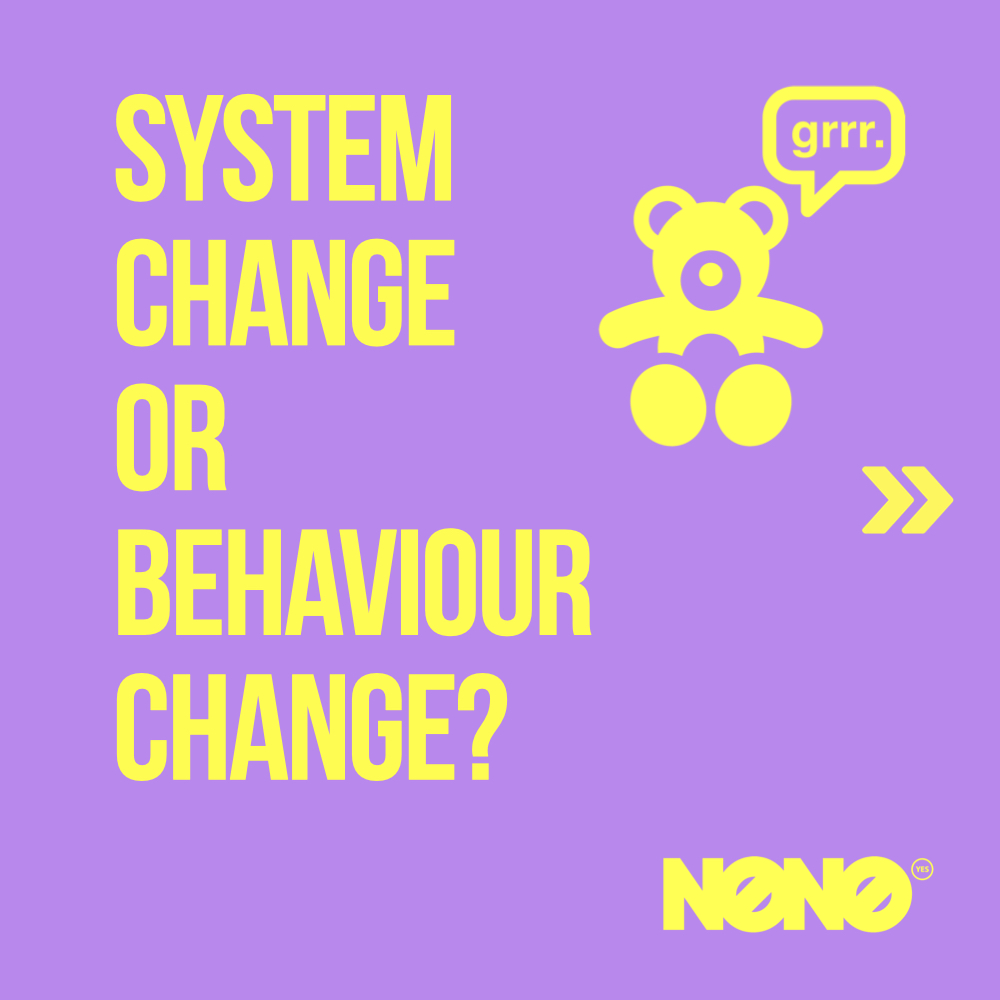
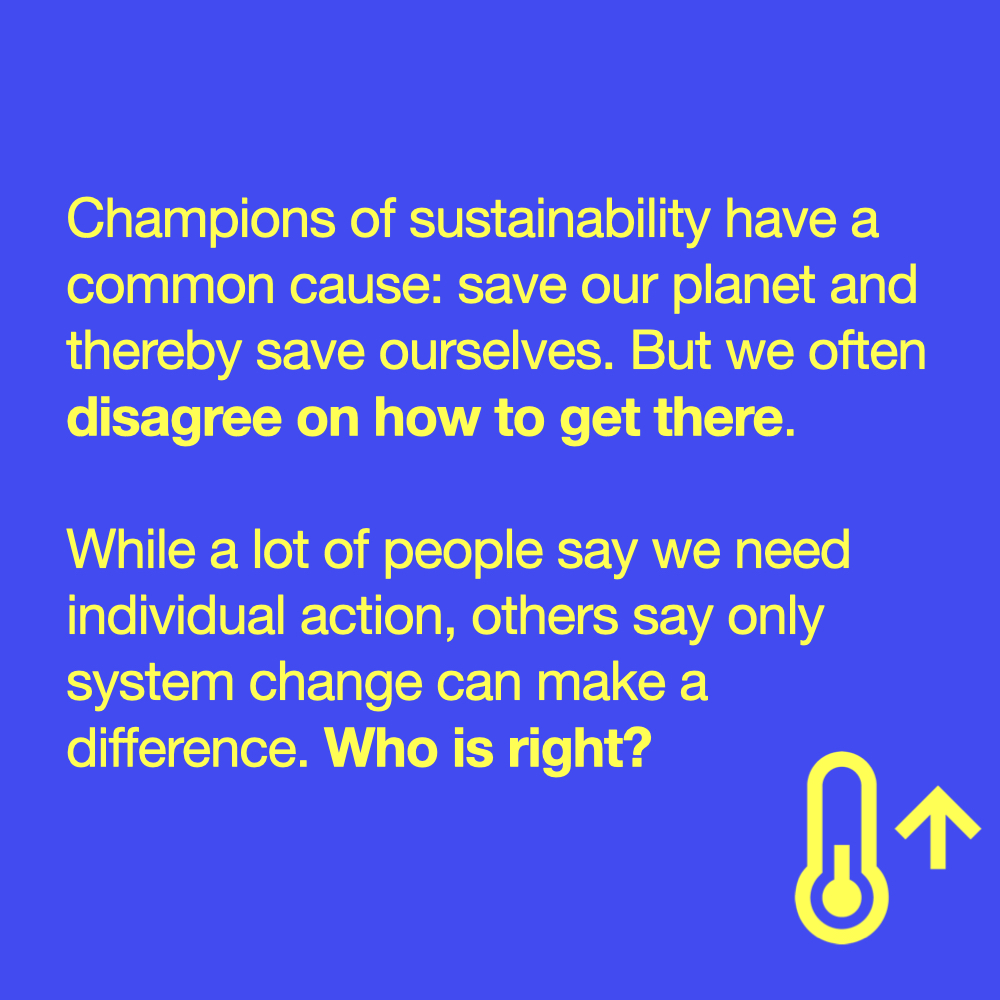
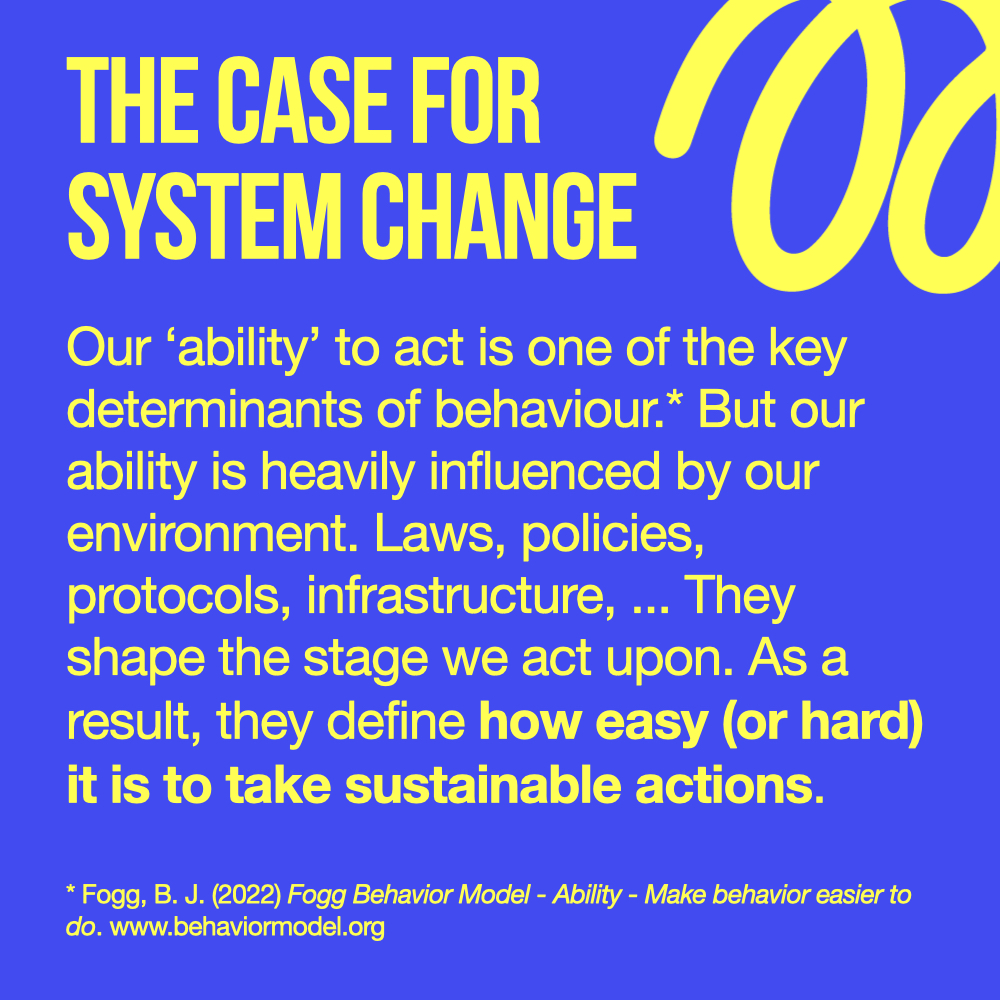
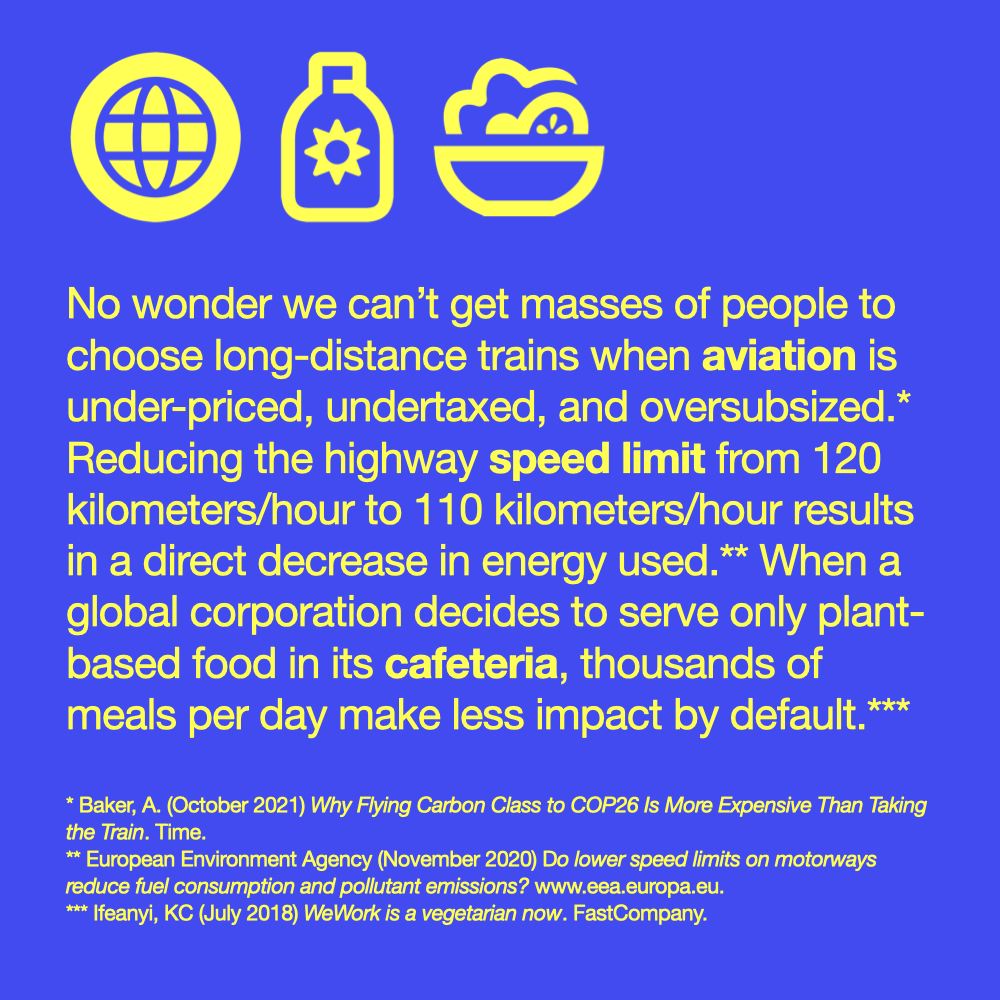
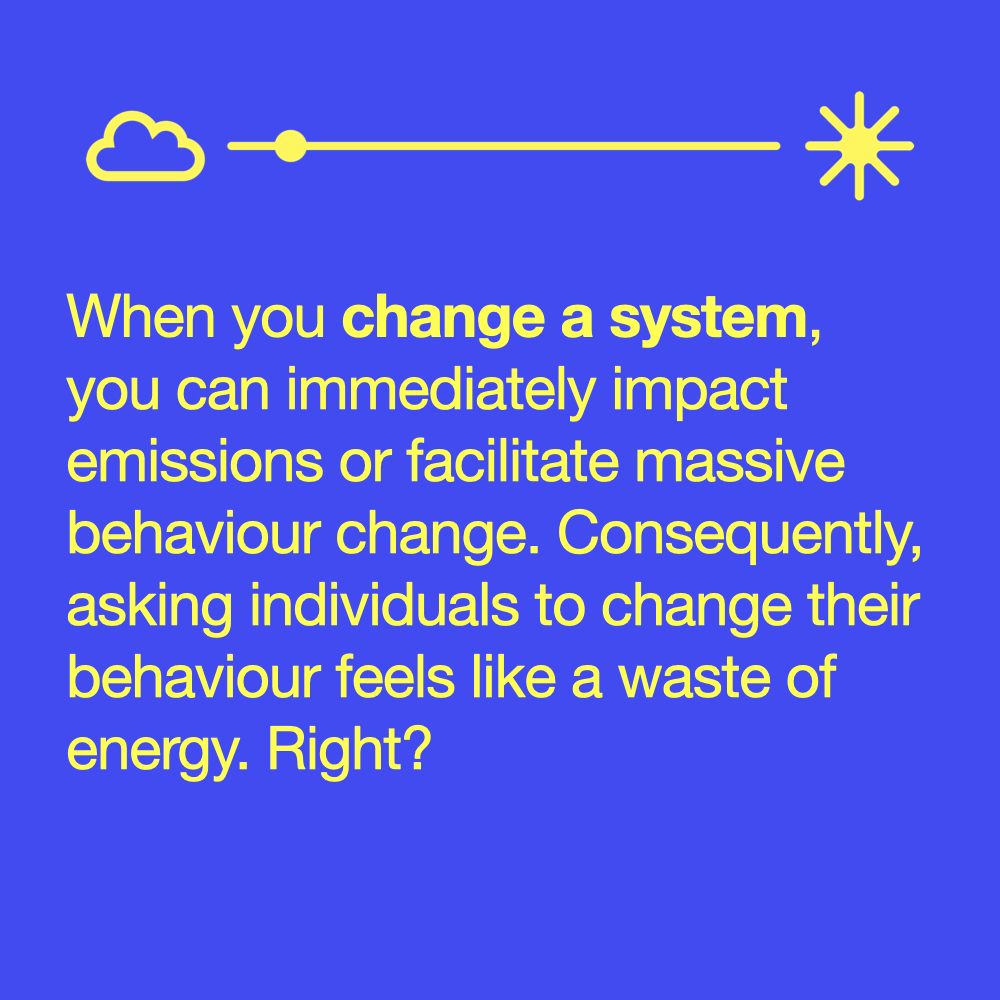
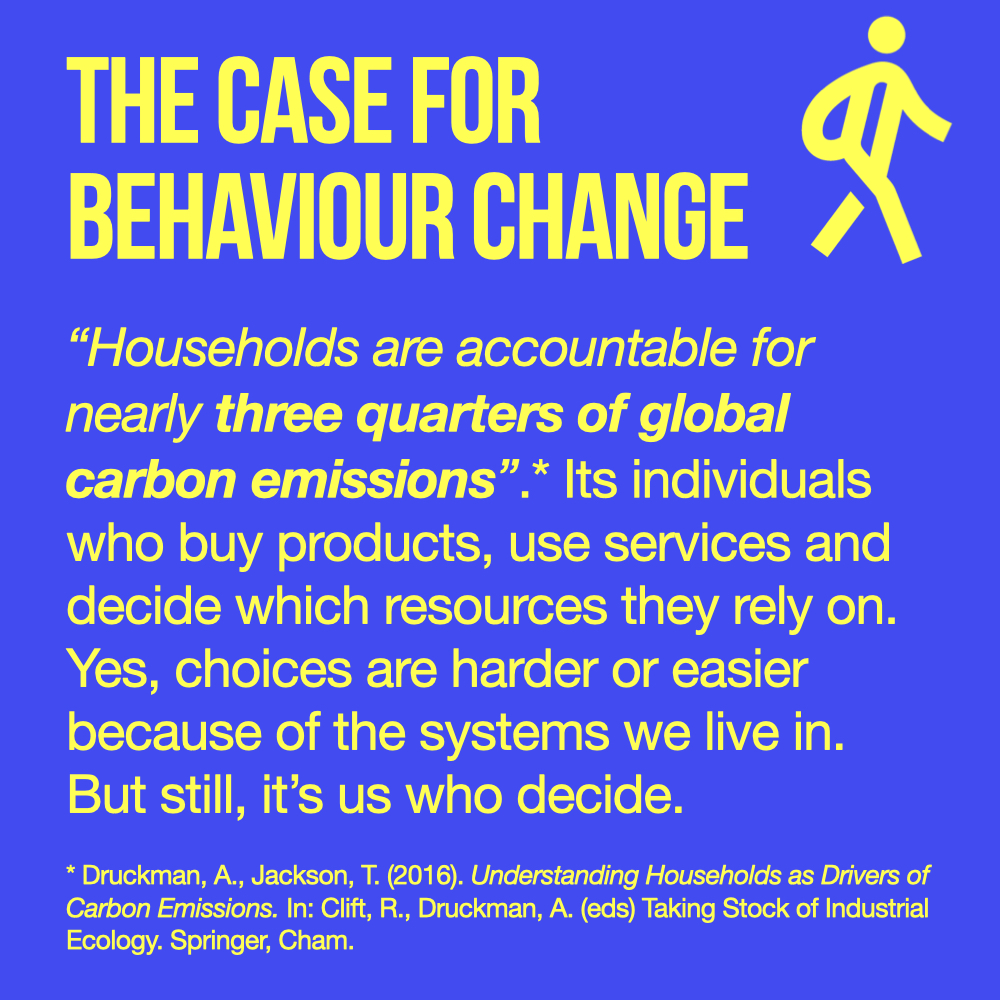
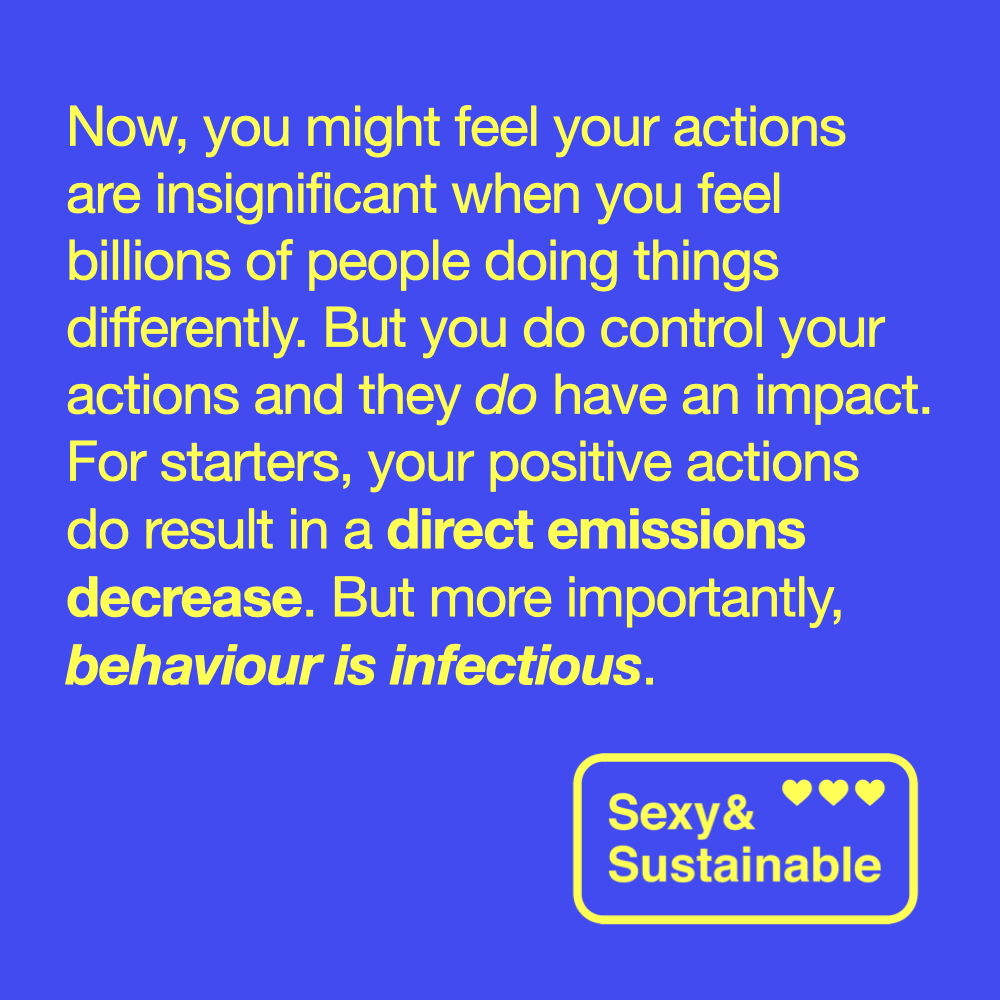
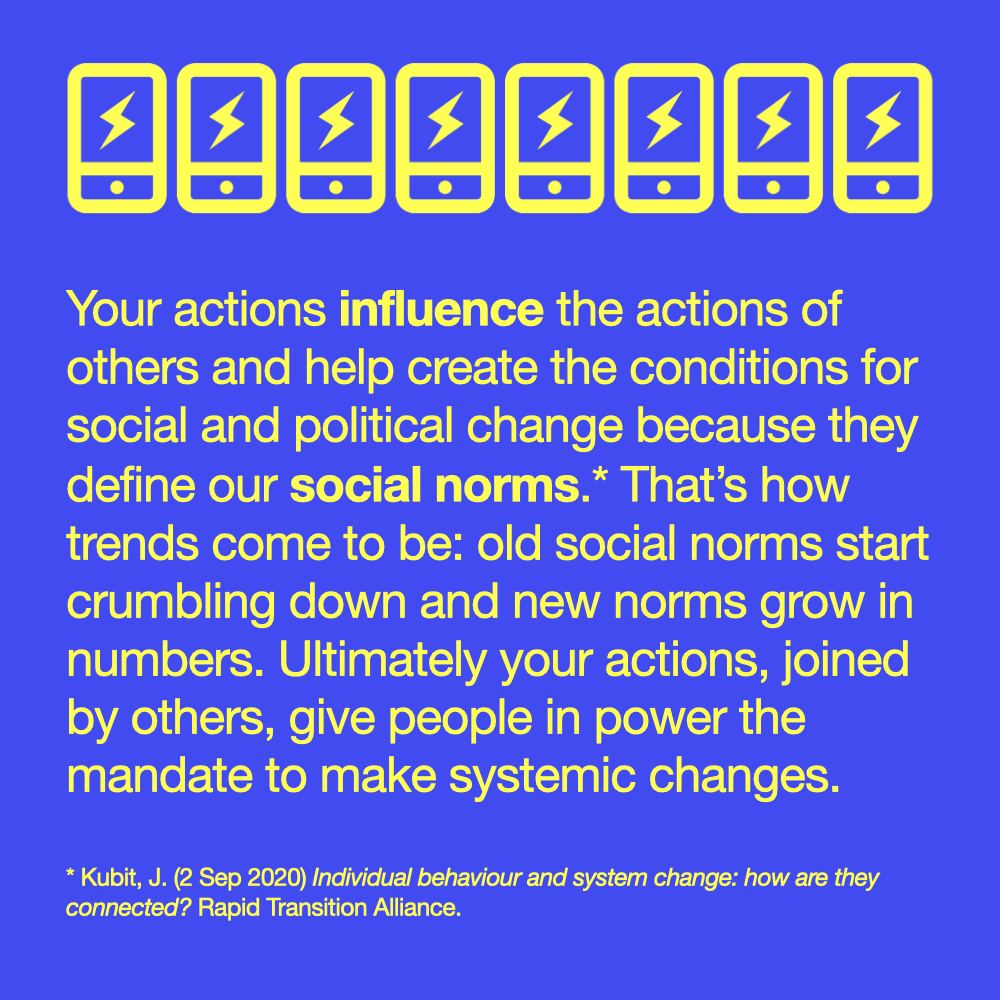
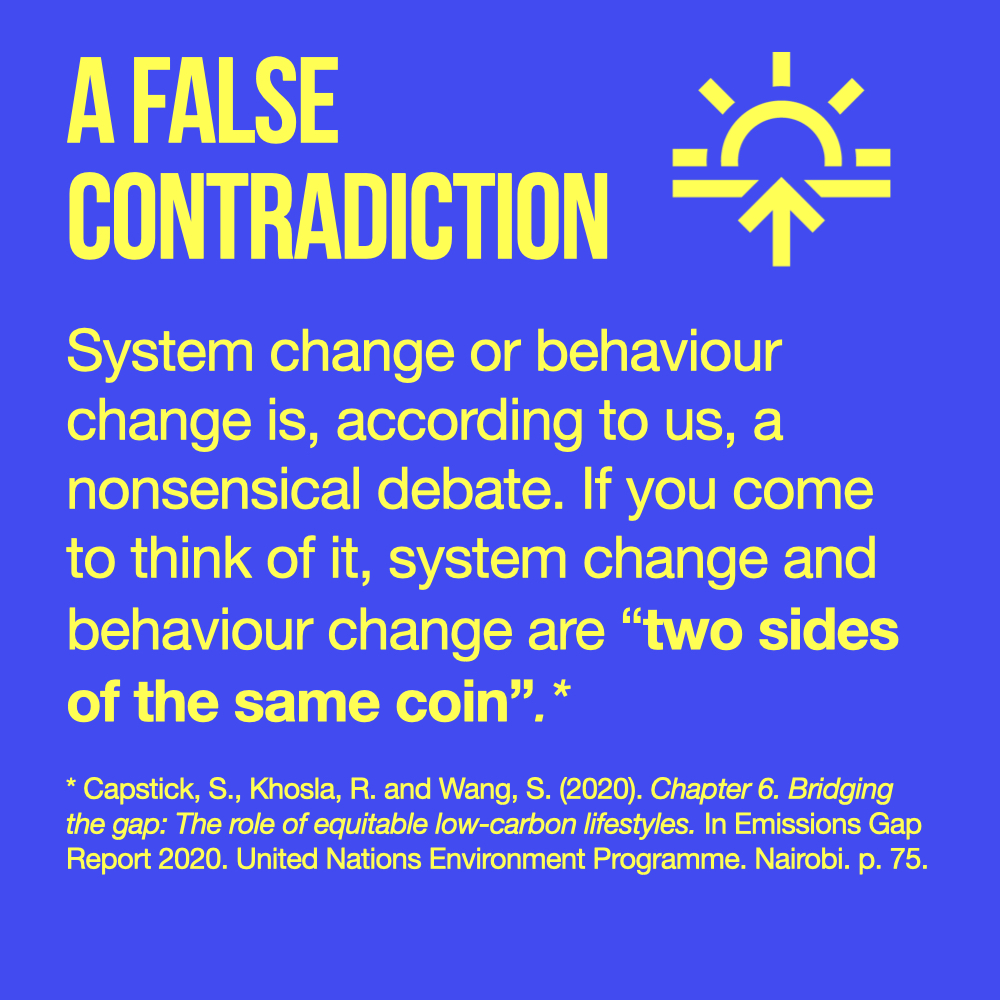
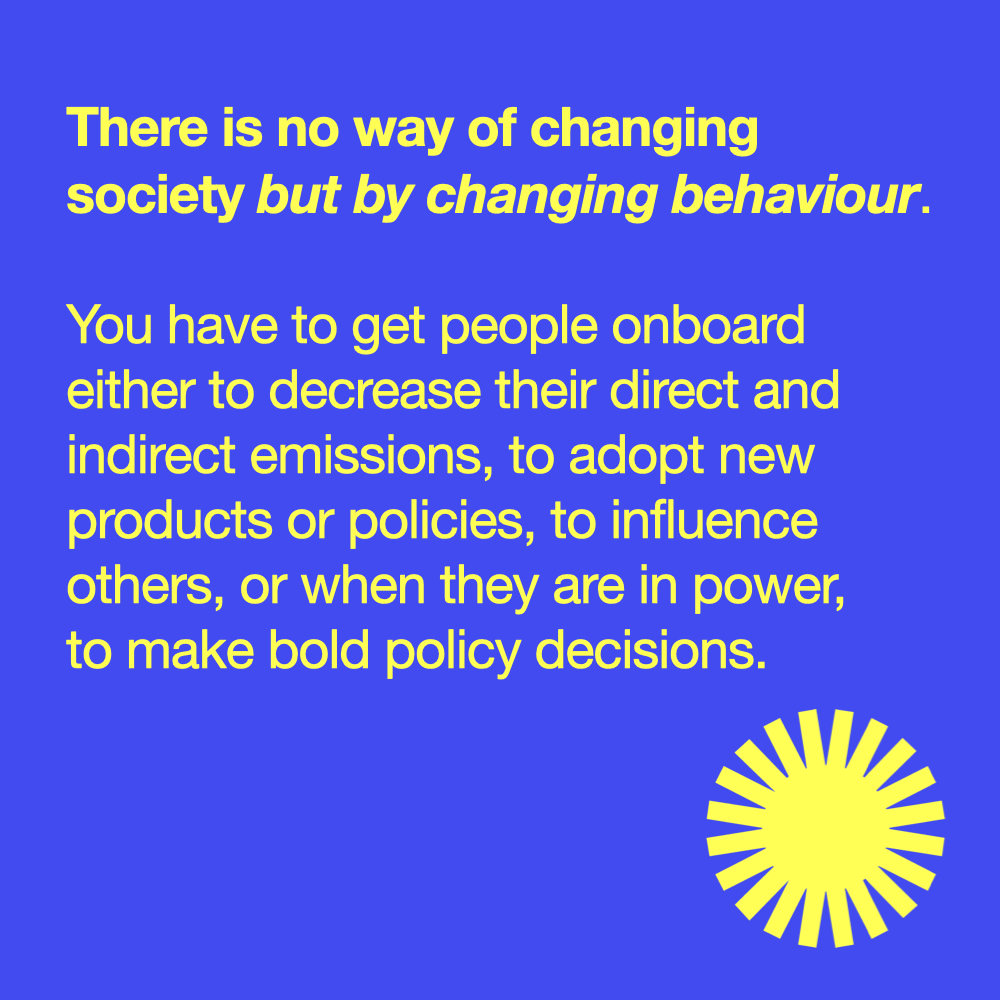
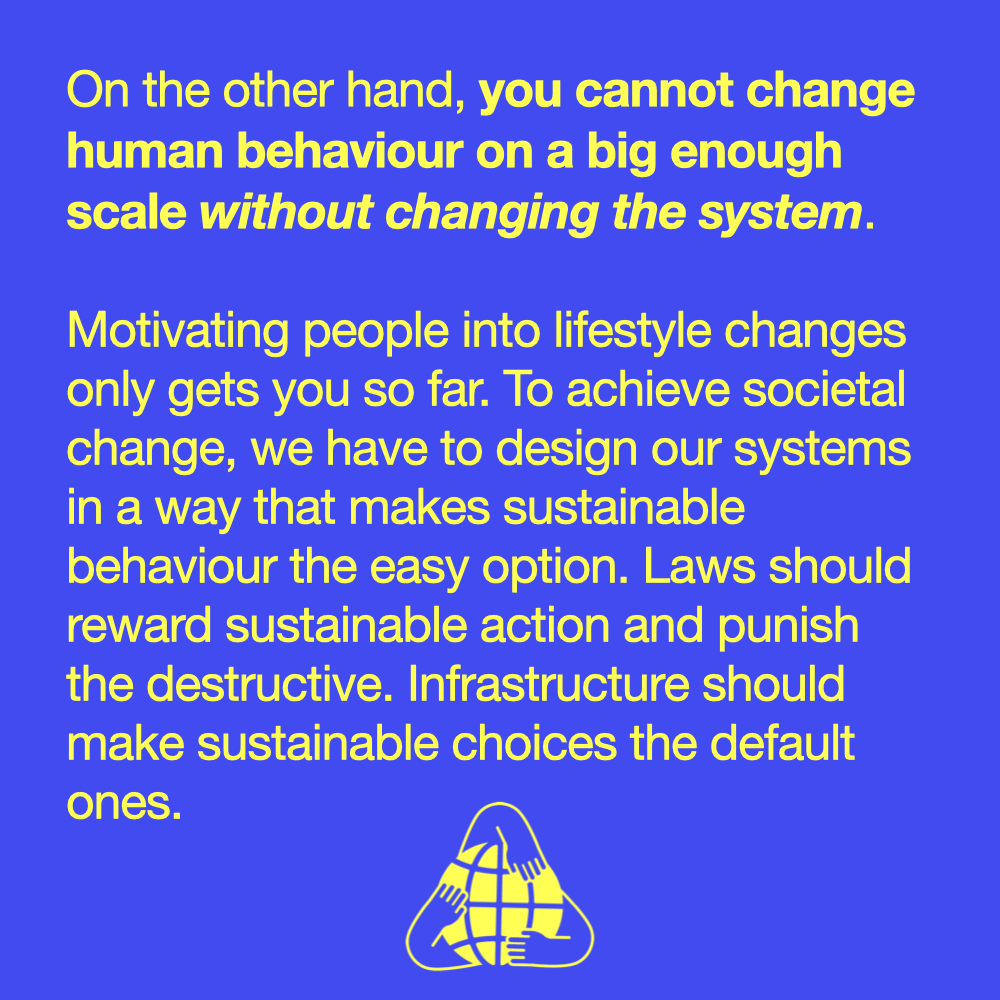
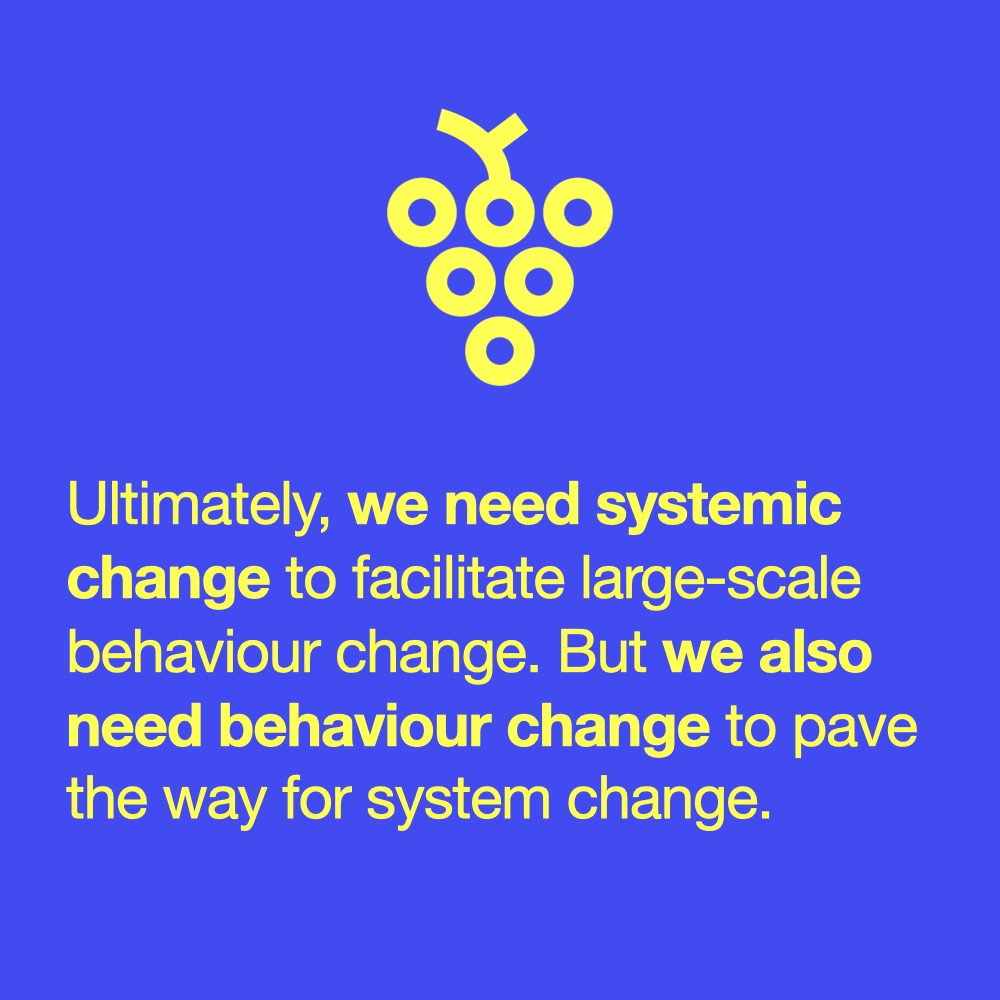
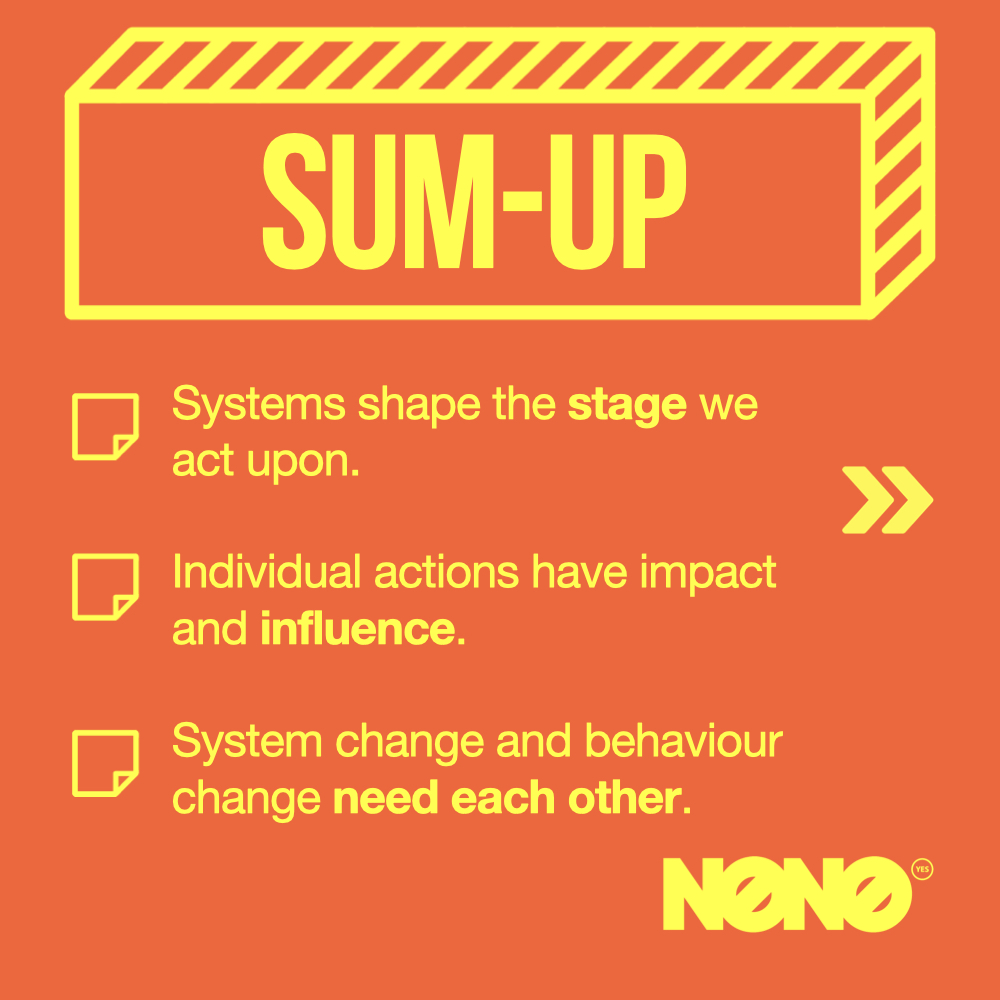

System change or behaviour change?
Champions of sustainability have a common cause: save our planet and thereby save ourselves. But we often disagree on how to get there.
While a lot of people say we need individual action, others say only a system change can make a difference. Who is right?
The case for system change
Our ability to act is one of the key determinants of behaviour (1). But our ability is heavily influenced by our environment. Laws, policies, protocols, infrastructure, … They shape the stage we act upon. As a result, they define how easy (or hard) it is to take sustainable actions.
No wonder we can’t get masses of people to choose long-distance trains when aviation is under-priced, undertaxed, and oversubsized (2). Reducing the highway speed limit from 120 kilometers/hour to 110 kilometers/hour results in a direct decrease in energy used (3). When a global corporation decides to serve only plant- based food in its cafeteria, thousands of meals per day make less impact by default (4).
When you change a system, you can immediately impact emissions or facilitate massive behaviour change. Consequently, asking individuals to change their behaviour feels like a waste of energy. Right?
The case for behaviour change
“Households are accountable for nearly three quarters of global carbon emissions” (5). Its individuals who buy products, use services and decide which resources they rely on. Yes, choices are harder or easier because of the systems we live in. But still, it’s us who decide.
Now, you might feel your actions are insignificant when you feel billions of people doing things differently. But you do control your actions and they do have an impact. For starters, your positive actions do result in a direct emissions decrease. But more importantly, behaviour is infectious.
Your actions influence the actions of others and help create the conditions for social and political change because they define our social norms (6). That’s how trends come to be: old social norms start crumbling down and new norms grow in numbers. Ultimately your actions, joined by others, give people in power the mandate to make systemic changes.
1. Fogg, B. J. (2022) Fogg Behavior Model – Ability – Make behavior easier to do. www.behaviormodel.org.
2. Baker, A. (October 2021) Why Flying Carbon Class to COP26 Is More Expensive Than Taking the Train. Time.
3. European Environment Agency (November 2020) Do lower speed limits on motorways reduce fuel consumption and pollutant emissions? www.eea.europa.eu.
4. Ifeanyi, KC (July 2018) WeWork is a vegetarian now. FastCompany.
5. Druckman, A., Jackson, T. (2016). Understanding Households as Drivers of Carbon Emissions. In: Clift, R., Druckman, A. (eds) Taking Stock of Industrial Ecology. Springer, Cham.
6. Kubit, J. (2 Sep 2020) Individual behaviour and system change: how are they connected? Rapid Transition Alliance.
7. Capstick, S., Khosla, R. and Wang, S. (2020). Chapter 6. Bridging the gap: The role of equitable low-carbon lifestyles. In Emissions Gap Report 2020. United Nations Environment Programme. Nairobi. p. 75.
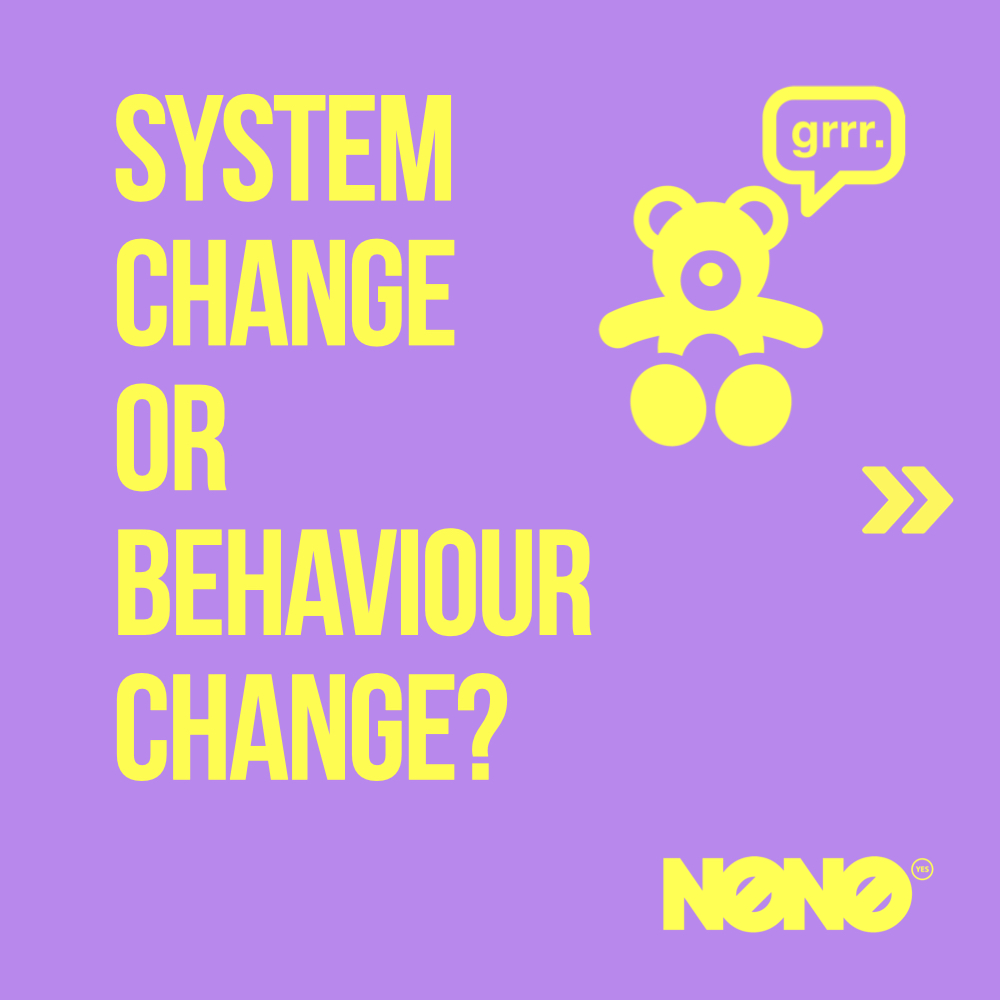
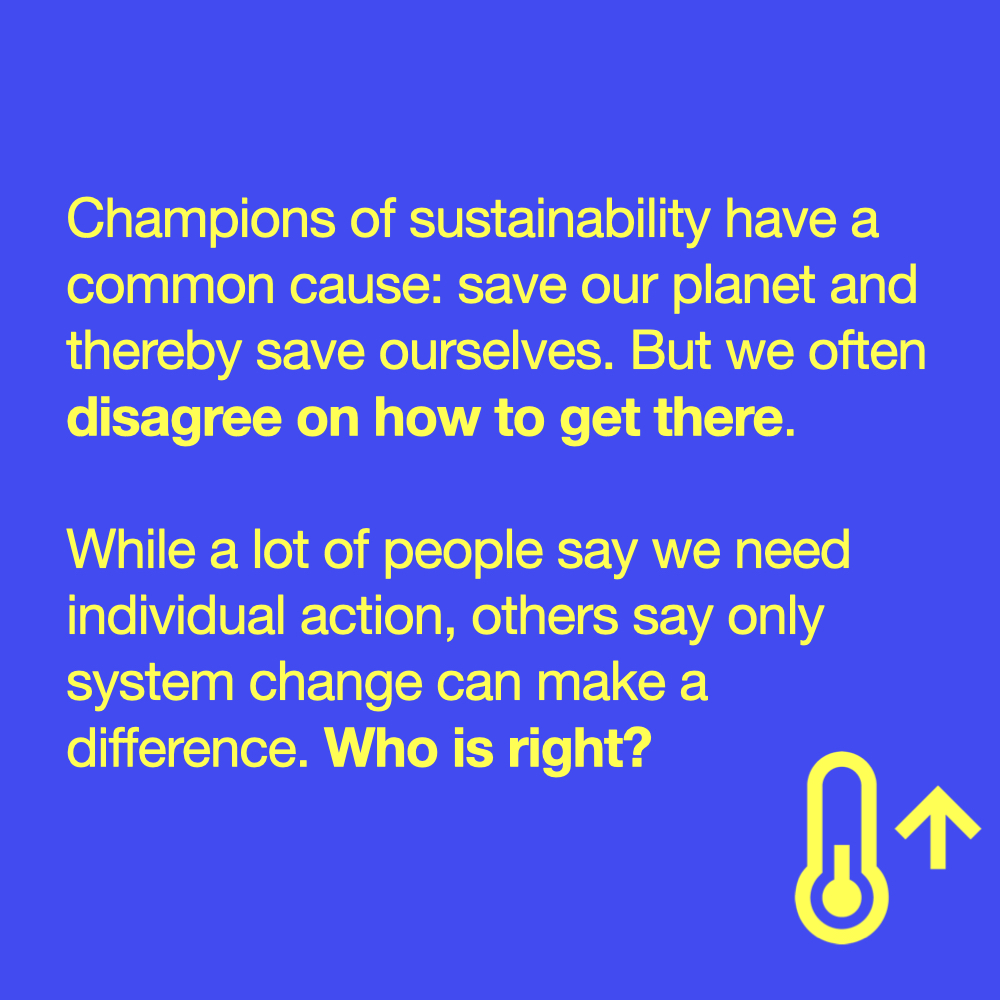
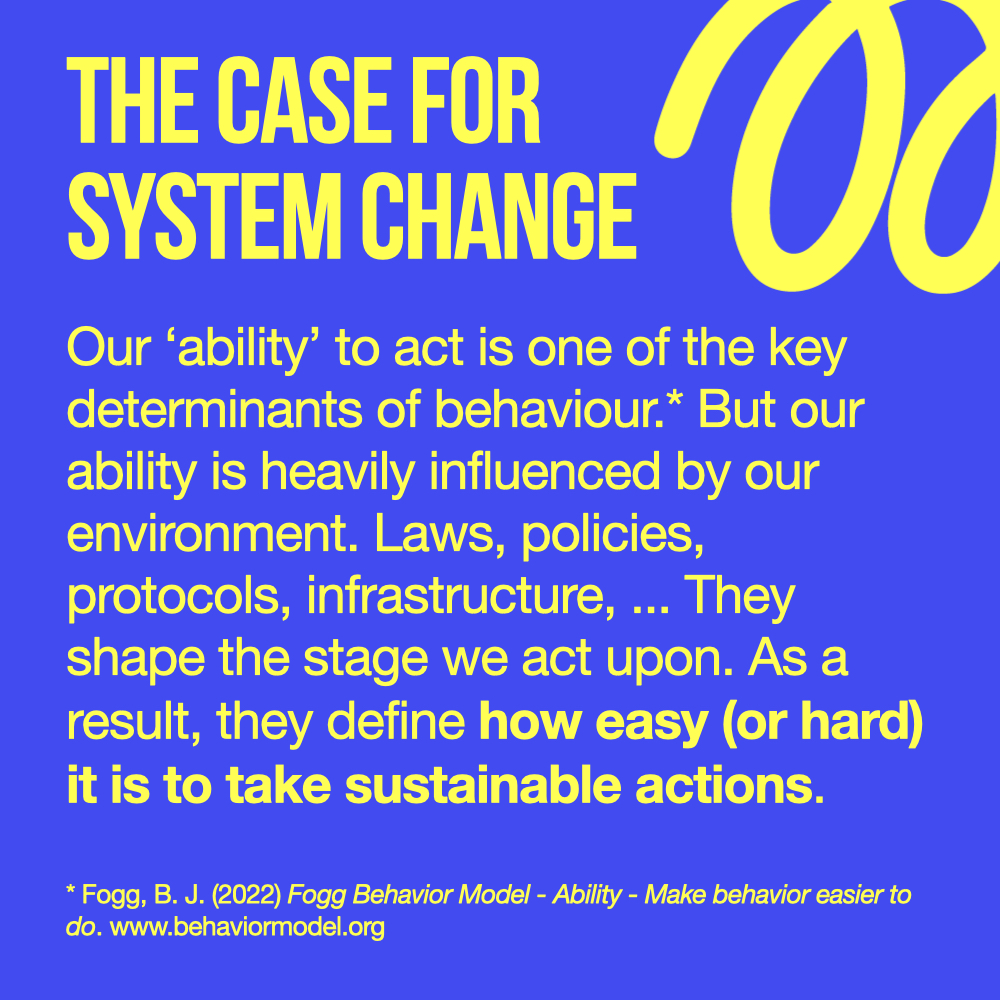
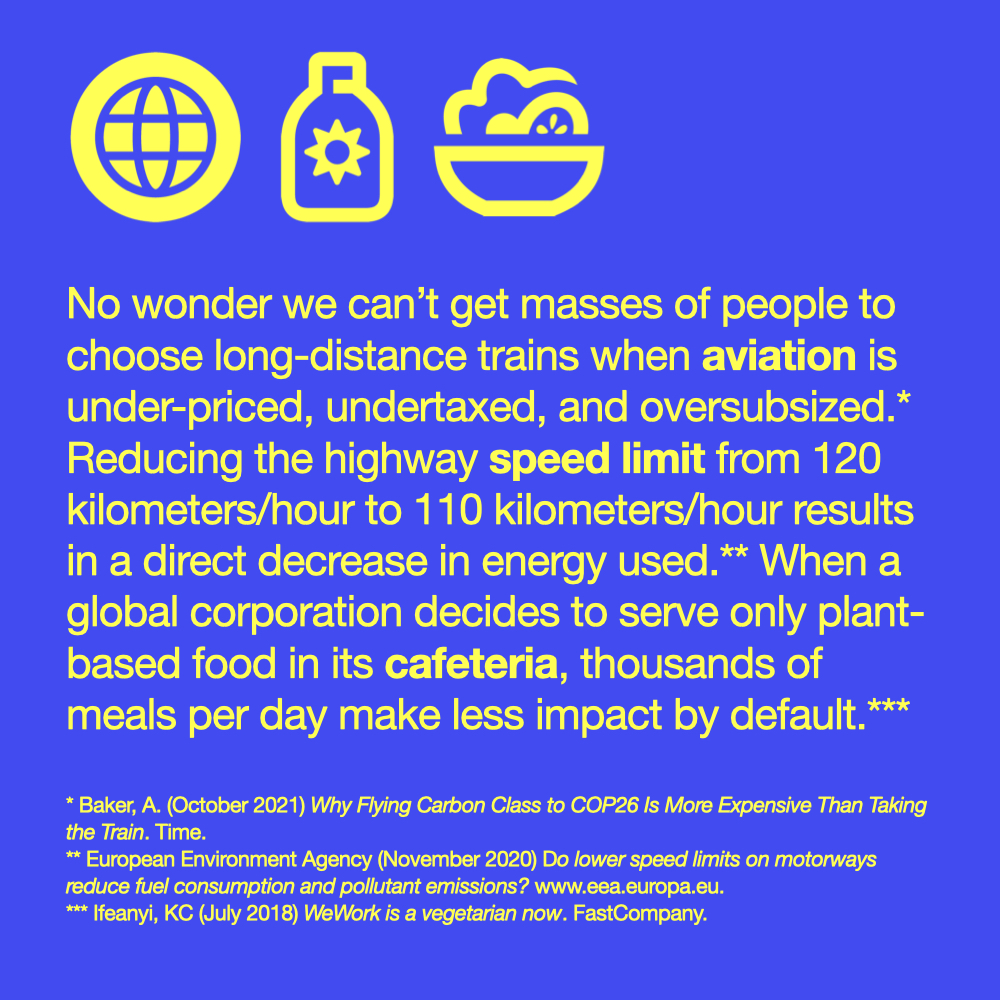
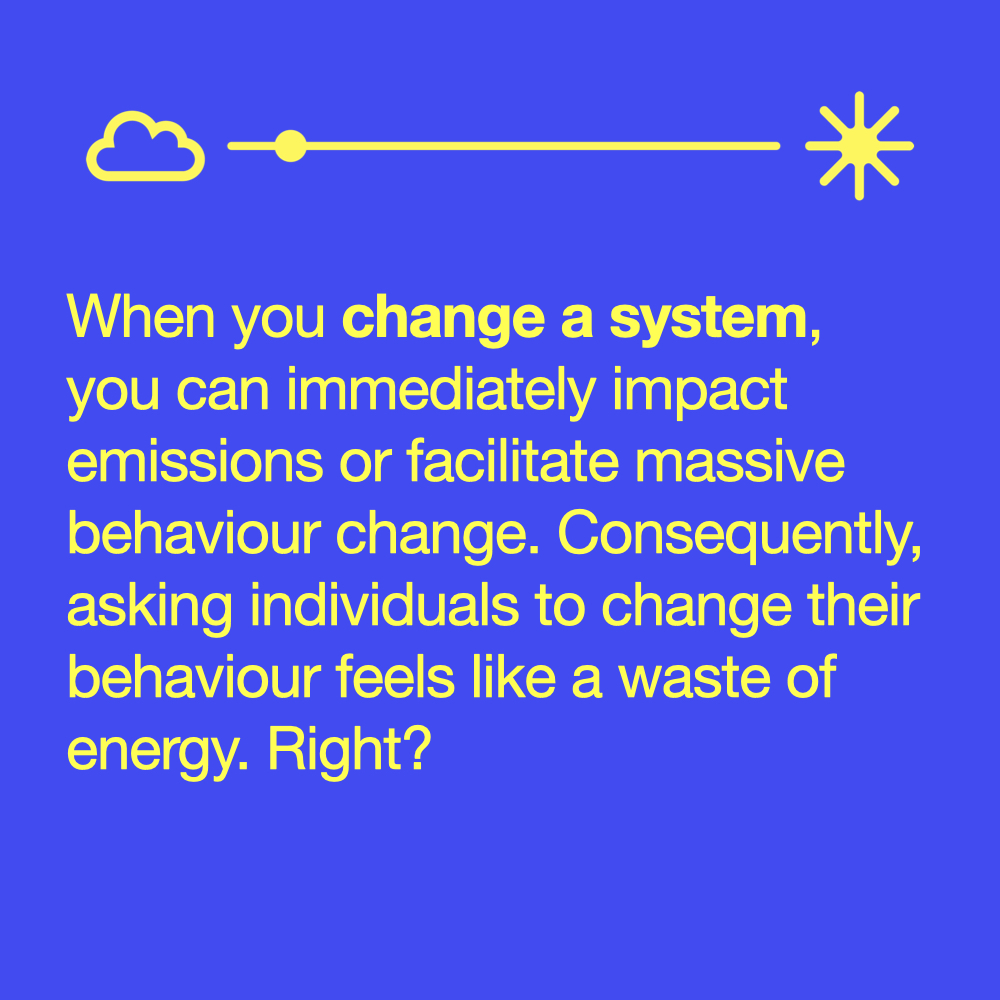
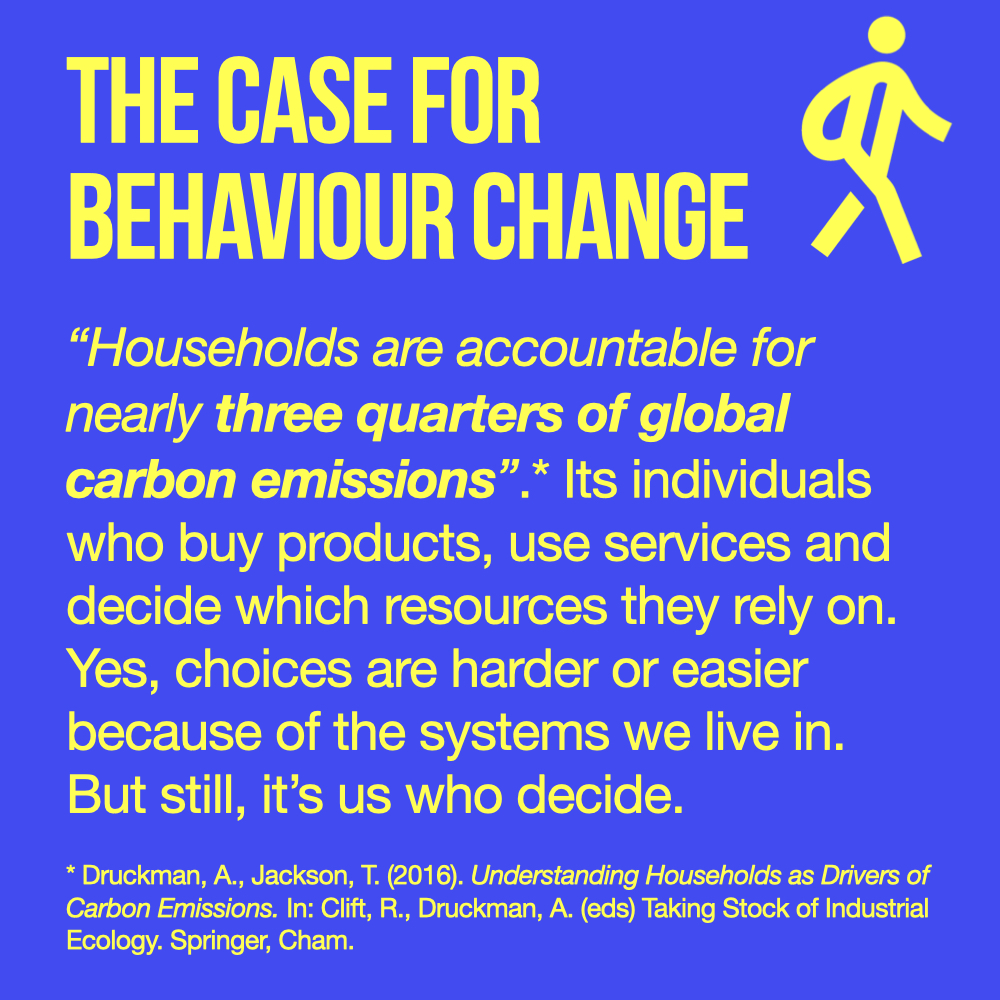
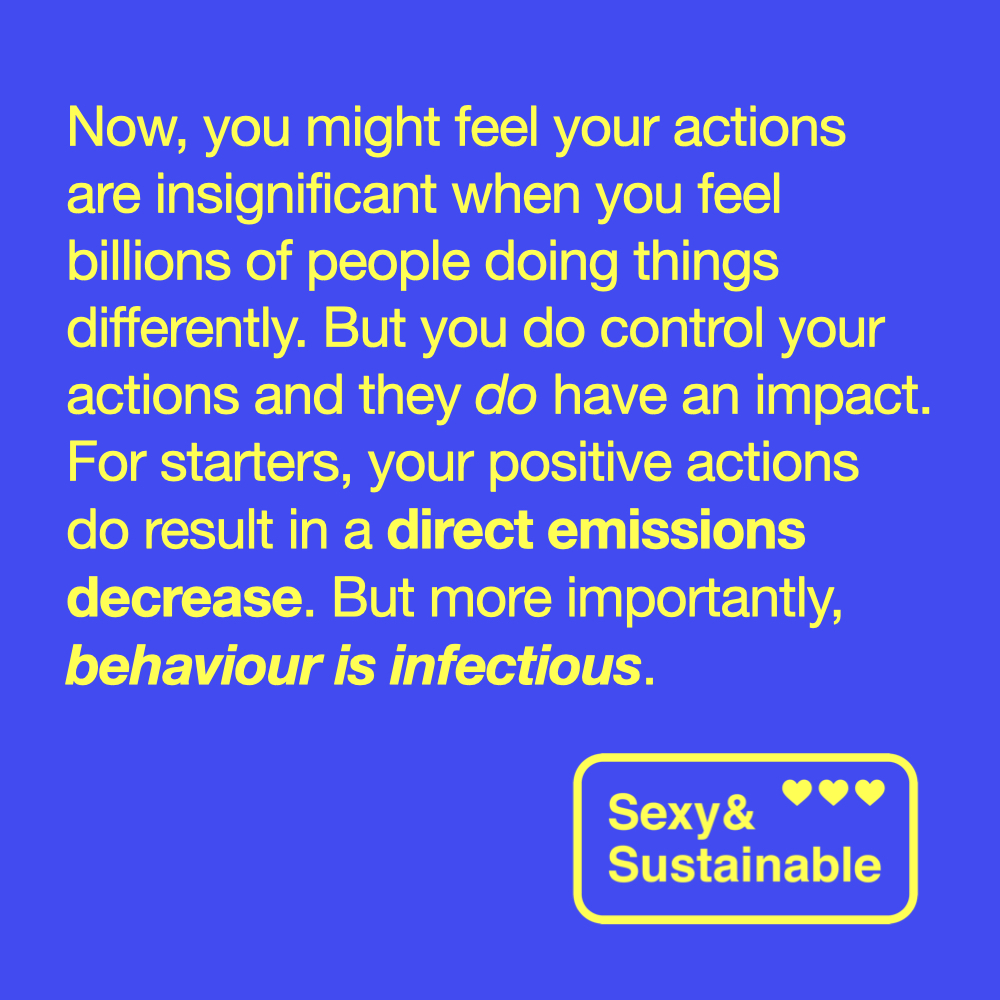
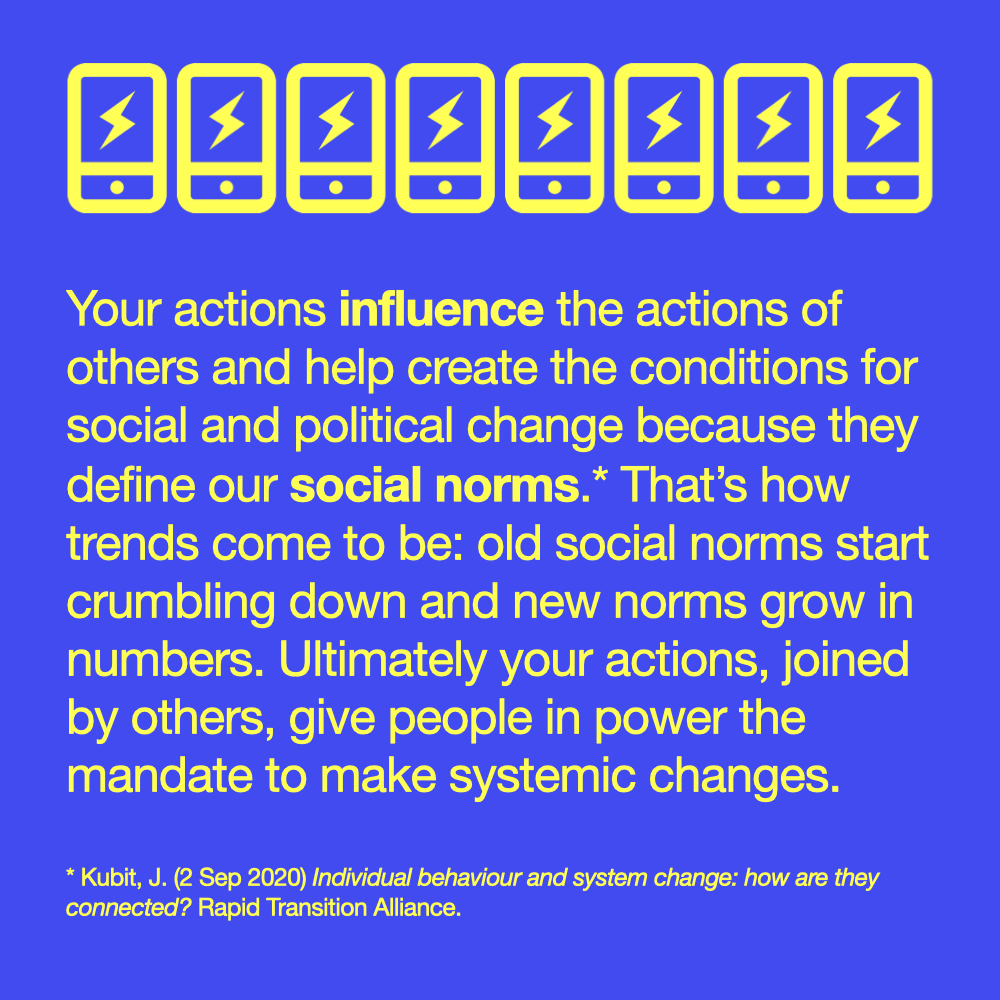
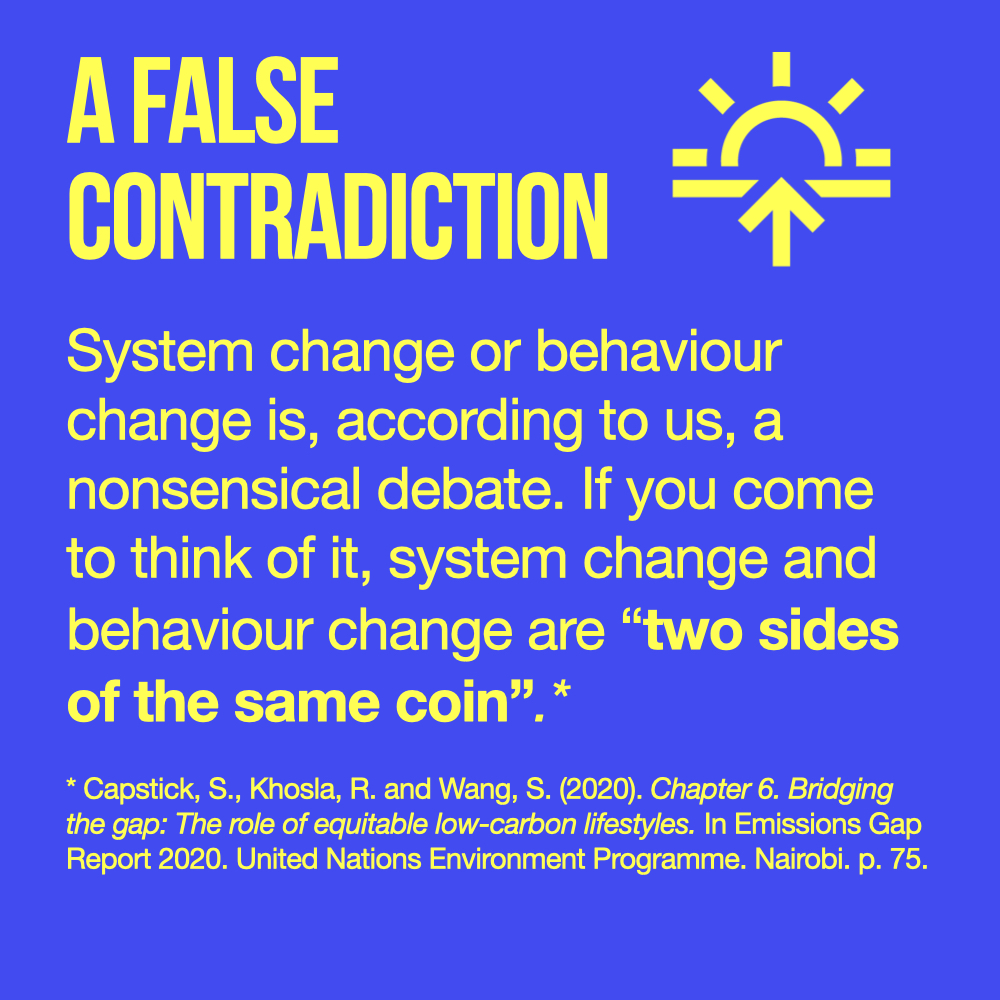
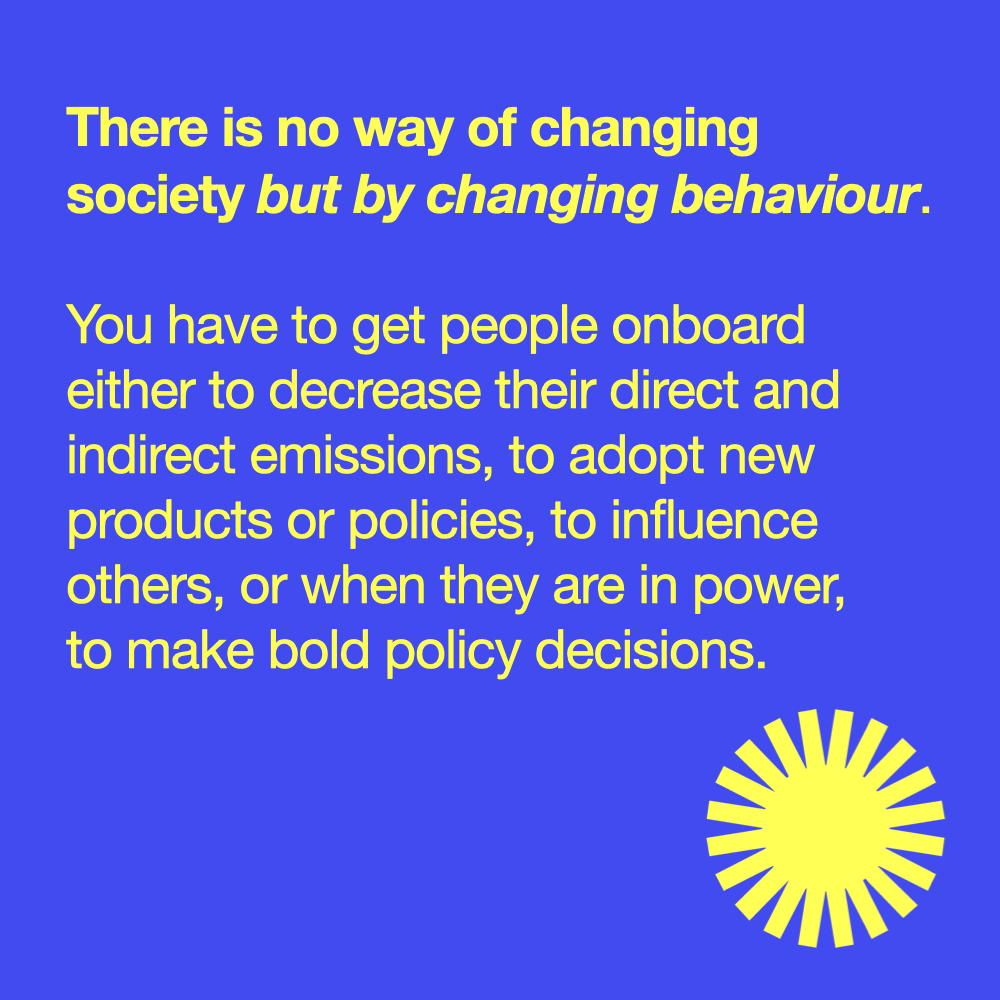
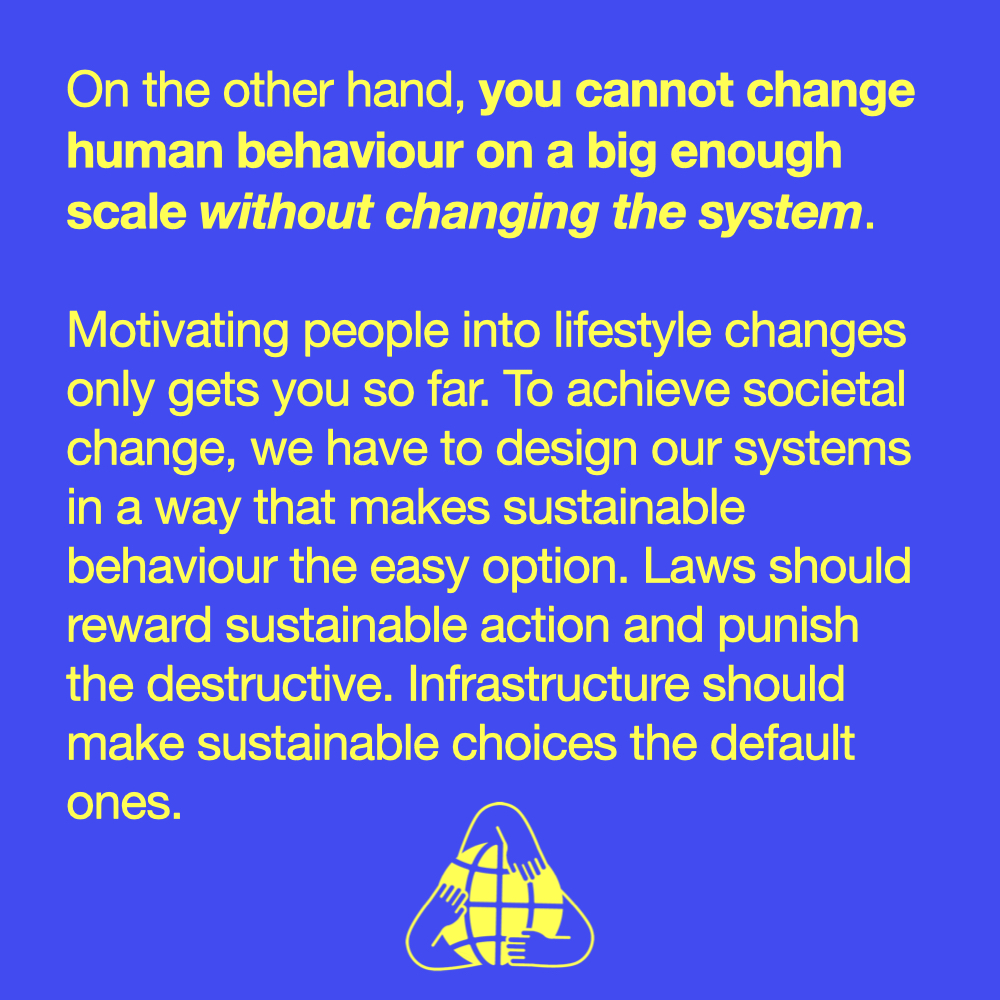
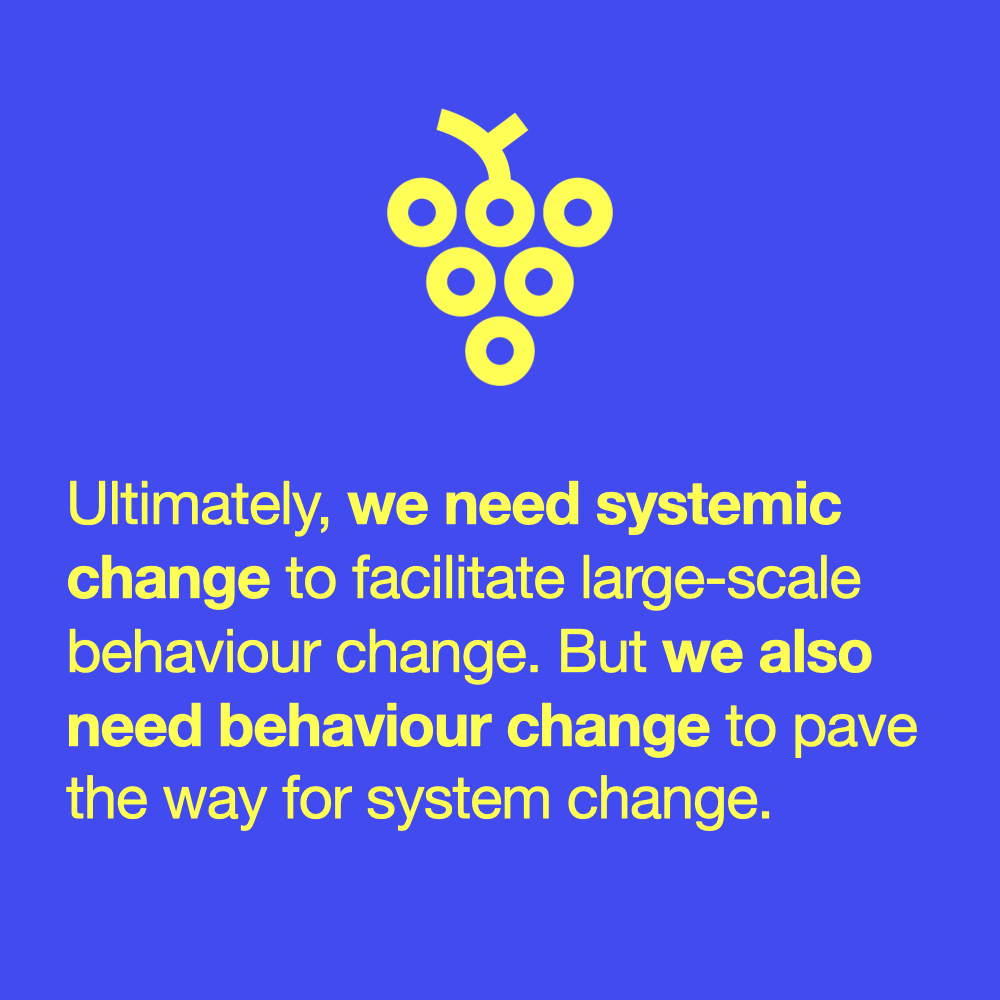
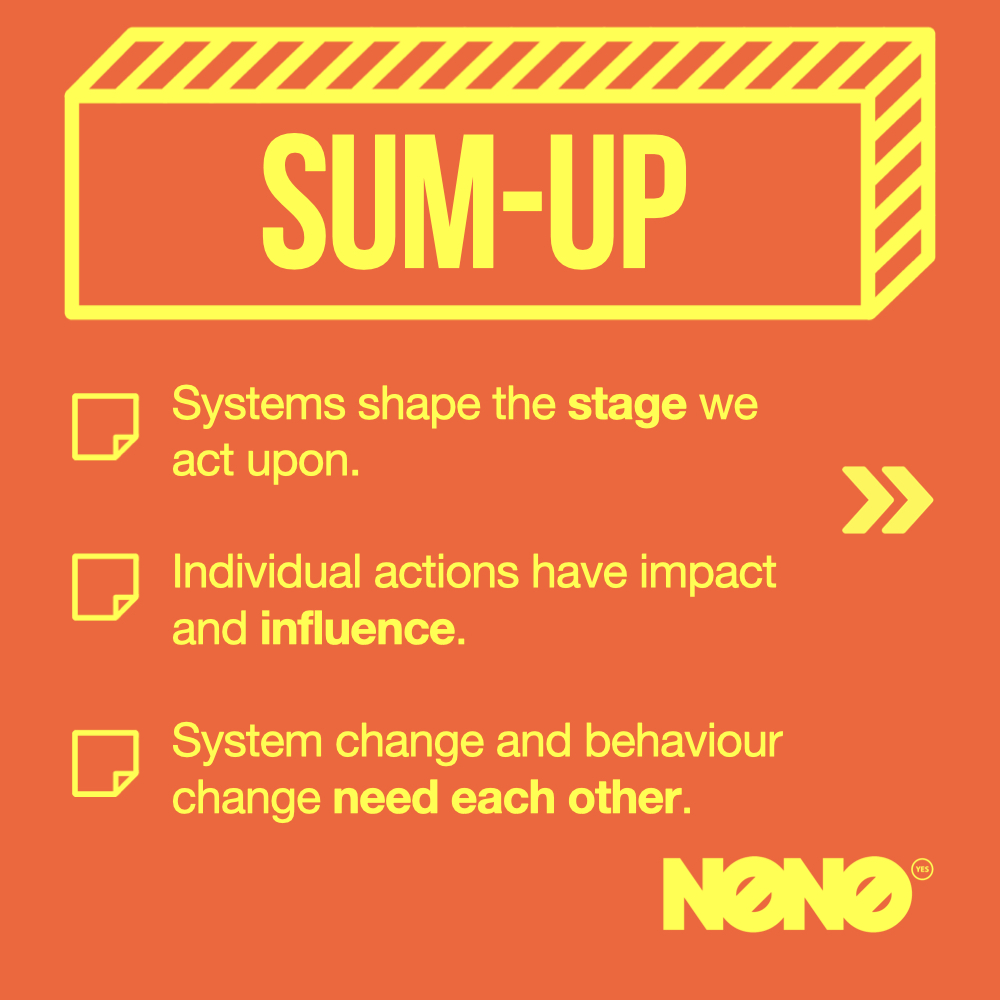

A false contradiction
System change or behaviour change is, according to us, a nonsensical debate. If you come to think of it, system change and behaviour change are “two sides of the same coin” (7).
There is no way of changing society but by changing behaviour. You have to get people onboard either to decrease their direct and indirect emissions, to adopt new products or policies, to influence others, or when they are in power,
to make bold policy decisions.
On the other hand, you cannot change human behaviour on a big enough scale without changing the system. Motivating people into lifestyle changes only gets you so far. To achieve societal change, we have to design our systems in a way that makes sustainable behaviour the easy option. Laws should reward sustainable action and punish the destructive. Infrastructure should make sustainable choices the default ones.
Ultimately, we need systemic change to facilitate large-scale behaviour change. But we also need behaviour change to pave the way for system change.
Sum-up
- ● Negative climate messages activate the doom barrier.
- ● Positive climate solution images grab attention.
- ● Start your next story with a positive vision.
1. Fogg, B. J. (2022) Fogg Behavior Model – Ability – Make behavior easier to do. www.behaviormodel.org.
2. Baker, A. (October 2021) Why Flying Carbon Class to COP26 Is More Expensive Than Taking the Train. Time.
3. European Environment Agency (November 2020) Do lower speed limits on motorways reduce fuel consumption and pollutant emissions? www.eea.europa.eu.
4. Ifeanyi, KC (July 2018) WeWork is a vegetarian now. FastCompany.
5. Druckman, A., Jackson, T. (2016). Understanding Households as Drivers of Carbon Emissions. In: Clift, R., Druckman, A. (eds) Taking Stock of Industrial Ecology. Springer, Cham.
6. Kubit, J. (2 Sep 2020) Individual behaviour and system change: how are they connected? Rapid Transition Alliance.
7. Capstick, S., Khosla, R. and Wang, S. (2020). Chapter 6. Bridging the gap: The role of equitable low-carbon lifestyles. In Emissions Gap Report 2020. United Nations Environment Programme. Nairobi. p. 75.